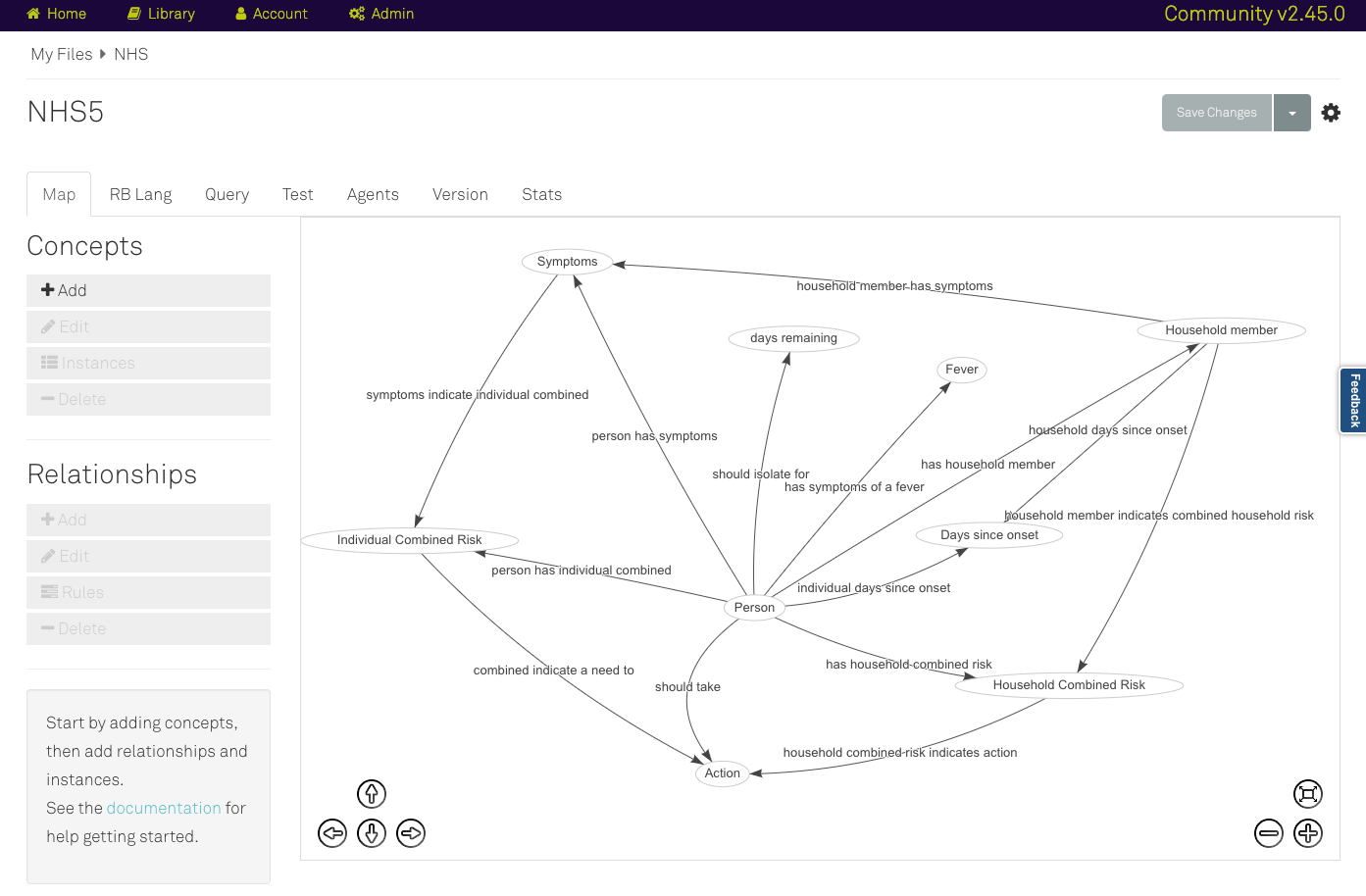
As it battles the coronavirus, the NHS is under pressure on many fronts, not least around staffing, but automation technology by Rainbird is helping take the strain.
One of the key issues with staffing in the NHS at present surrounds the question of whether staff that have developed coronavirus symptoms should stay home. And this has been exacerbated by confusion about official advice on the matter.
“NHS and government advice on self-isolation don’t perfectly align and the advice is just complicated enough to be misinterpreted,” James Duez, CEO of Rainbird, tells Verdict.
“Occupational health teams were getting hundreds of calls per day from staff who were uncertain about whether to come to work.”
However, Rainbird has tackled the problem using its automation technology, by creating a tool to handle these queries after being approached by the NHS.
“On 20th March 2020, I issued an open letter inviting the world to use our technology for free, to help others in the face of the Covid-19 pandemic,” says Duez.
How well do you really know your competitors?
Access the most comprehensive Company Profiles on the market, powered by GlobalData. Save hours of research. Gain competitive edge.

Thank you!
Your download email will arrive shortly
Not ready to buy yet? Download a free sample
We are confident about the unique quality of our Company Profiles. However, we want you to make the most beneficial decision for your business, so we offer a free sample that you can download by submitting the below form
By GlobalData“The NHS responded and, in eight days, we developed and delivered a tool to help safeguard NHS workers and alleviate pressure on occupational health teams.”
The tool in question is already being used by the Norfolk and Norwich University Hospitals Foundation Trust (NNUH), where it has freed up considerable time for healthcare workers.
“The tool has been live for two weeks and is already making a significant difference. Staff suffering symptoms of Covid-19 can consult with the Rainbird-powered tool to get contextual advice on their personal circumstances,” he explains.
“Calls plummeted upon launching the tool, enabling critical staff to focus their energies on other important activities.”

Automation in the NHS: Alleviating pressure during the coronavirus pandemic
The response from NNUH has so far been very positive.
“This is a vital tool for a number of reasons – not only does it help to protect front-line staff and their colleagues in this time of great need, it will also significantly reduce pressure on occupational health services by giving staff another option for support if they develop symptoms,” said Dr Robert Hardman, consultant in occupational medicine at NNUH.
There are also plans to roll it out to other NHS trusts, as well as organisations overseas.
“It is currently being evaluated by other trusts throughout the South East and beyond. It is also being evaluated by African governments, where tracking of the disease is running some weeks behind the developed world,” says Duez.
And although it has only been live for NHS users for a very short period, Rainbird has already expanded its automation capabilities to further support staff impacted by the coronavirus.
“In the ten days since launch, the tool’s functionality has already been expanded. It now determines which households are priorities for testing, so resources aren’t allocated where they’re unlikely to liberate frontline staff. It also now highlights increasingly recognised secondary symptoms of Covid-19,” he explains.
“The tool also enables planners to better understand the resources they have available, as it predicts the estimated return date for each staff member.”
However, it is not the only application Rainbird’s automation technology has within the NHS; the company is now developing a second tool that is designed to help allocate staff amid the coronavirus.
“A second tool is in rapid development. This will perform a comprehensive risk assessment of front-line workers, evaluating factors such as age, existing health conditions and ability to wear PPE to classify in which front-line ‘zones’ workers can operate,” he explains.
“It is important to recognise that the rules are changing frequently as more is learnt about the disease. This is applicable not just to the NHS but other front-line workers.”
Beyond the NHS: Rainbird, automation and the coronavirus
The NHS isn’t the only organisation to reap the benefits of Rainbird automation technology free of charge, as Duez is passionate about using the company’s tools for good.
“Rainbird is all about supporting human workers, to enable them to operate at a scale that would be impossible without machine intelligence. I have a fundamental belief that it is incumbent on technology companies to deploy their innovation for the greater good, where possible,” he says.
“Before Covid-19, we were collaborating with EY and the Royal College of Art on a project to support financially vulnerable people, and license our technology free of charge to universities.
“Other projects have included collaborations with EY and banks to support financial forbearance claims.”
Meanwhile, those working at Rainbird have joined millions of others in making the switch to working from home, although Duez says this was not particularly challenging for the cloud-first company.
“As an agile technology company, our systems are all cloud-based. We were able to close our offices and work from home without interruption. Homeworking was the basis of our business continuity plan and it had been tested in January,” he says.
“We’ve had some staff (including my co-founder) suffer symptoms of Covid-19, but all have quickly recovered. We have also secured a confidential counselling service to support the mental health of our teams at this time.”
Intelligent automation: A key part of the future
Looking to the future, Duez expects working from home to become more common even after the pandemic has ended.
“We’ve always accommodated staff working from home and have now proven that the business can operate efficiently on that basis. So, I suspect that we will operate on this basis more, where it suits both the staff and our clients,” he says.
However, he does believe that intelligent automation will become increasingly essential to helping organisations survive in the post-coronavirus world.
“Coronavirus has caused massive disruption within the corporate world, where organisations that aspired to be digital now have to be in order to survive. This crisis actually strengthens the case for intelligent automation, as organisations need to empower their staff to work from home without the usual physical supervision,” he says.
“Our technology operates like a seasoned expert, whispering sage advice in their ear, enabling them to achieve high-quality outcomes with unprecedented efficiency. That’s something the world is going to need more of.”
Read more: Coronavirus case studies: How 8×8 is helping deliver patient care via the cloud






